Ignacio Cano
ADARES: Adaptive Resource Management for Virtual Machines
Dec 06, 2018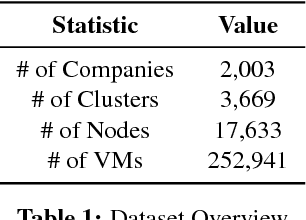
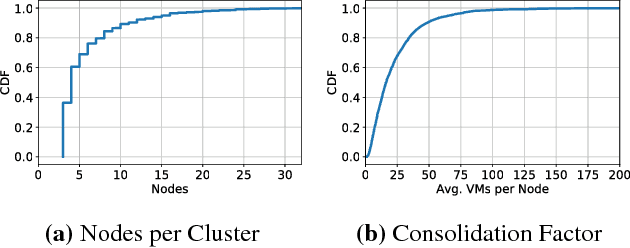
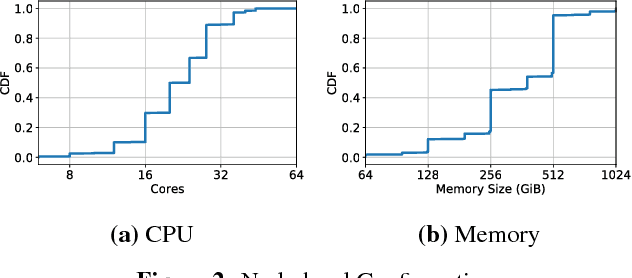
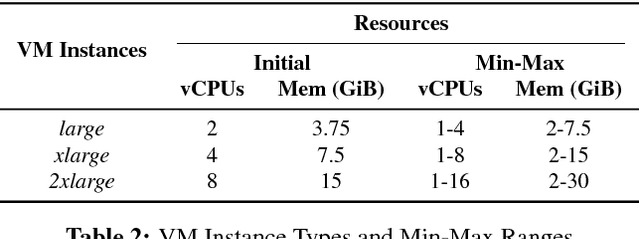
Abstract:Virtual execution environments allow for consolidation of multiple applications onto the same physical server, thereby enabling more efficient use of server resources. However, users often statically configure the resources of virtual machines through guesswork, resulting in either insufficient resource allocations that hinder VM performance, or excessive allocations that waste precious data center resources. In this paper, we first characterize real-world resource allocation and utilization of VMs through the analysis of an extensive dataset, consisting of more than 250k VMs from over 3.6k private enterprise clusters. Our large-scale analysis confirms that VMs are often misconfigured, either overprovisioned or underprovisioned, and that this problem is pervasive across a wide range of private clusters. We then propose ADARES, an adaptive system that dynamically adjusts VM resources using machine learning techniques. In particular, ADARES leverages the contextual bandits framework to effectively manage the adaptations. Our system exploits easily collectible data, at the cluster, node, and VM levels, to make more sensible allocation decisions, and uses transfer learning to safely explore the configurations space and speed up training. Our empirical evaluation shows that ADARES can significantly improve system utilization without sacrificing performance. For instance, when compared to threshold and prediction-based baselines, it achieves more predictable VM-level performance and also reduces the amount of virtual CPUs and memory provisioned by up to 35% and 60% respectively for synthetic workloads on real clusters.
Towards Geo-Distributed Machine Learning
Mar 30, 2016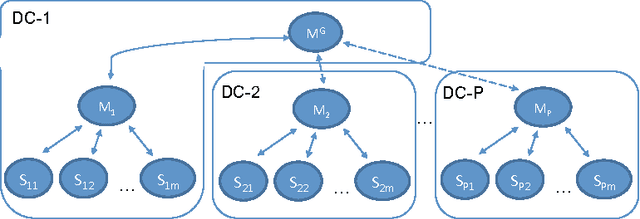

Abstract:Latency to end-users and regulatory requirements push large companies to build data centers all around the world. The resulting data is "born" geographically distributed. On the other hand, many machine learning applications require a global view of such data in order to achieve the best results. These types of applications form a new class of learning problems, which we call Geo-Distributed Machine Learning (GDML). Such applications need to cope with: 1) scarce and expensive cross-data center bandwidth, and 2) growing privacy concerns that are pushing for stricter data sovereignty regulations. Current solutions to learning from geo-distributed data sources revolve around the idea of first centralizing the data in one data center, and then training locally. As machine learning algorithms are communication-intensive, the cost of centralizing the data is thought to be offset by the lower cost of intra-data center communication during training. In this work, we show that the current centralized practice can be far from optimal, and propose a system for doing geo-distributed training. Furthermore, we argue that the geo-distributed approach is structurally more amenable to dealing with regulatory constraints, as raw data never leaves the source data center. Our empirical evaluation on three real datasets confirms the general validity of our approach, and shows that GDML is not only possible but also advisable in many scenarios.
 Add to Chrome
Add to Chrome Add to Firefox
Add to Firefox Add to Edge
Add to Edge